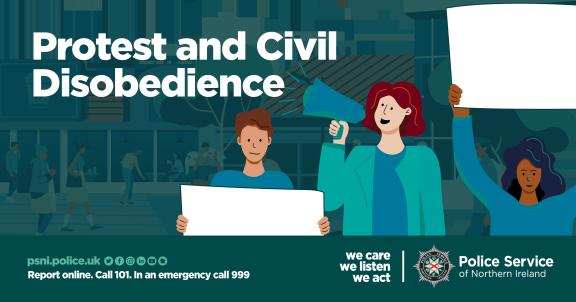Guidance for protest and “civil disobedience”
The right to freedom of speech and freedom assembly are fundamental human rights. They are protected in law and allow individuals to engage in peaceful protest. However, these rights are limited by the need to uphold the rights of others, protect public health and safety, minimise disruption to normal life and by the need to prevent and detect crime.
“Civil disobedience” is not clearly defined in law but may refer to the deliberate and non-violent violation of laws, regulations, or policies as a form of protest.
Actions associated with “civil disobedience” such as blocking roads or occupying buildings are not afforded the same protections in law as freedom of speech and assembly. They may be unlawful in terms of criminal and civil liability. In particular, they may give rise to specific criminal offences under the Public Order (Northern Ireland) Order 1987.

